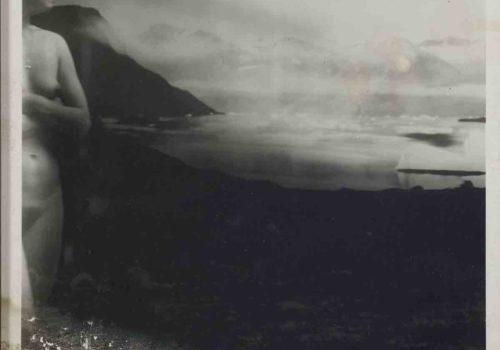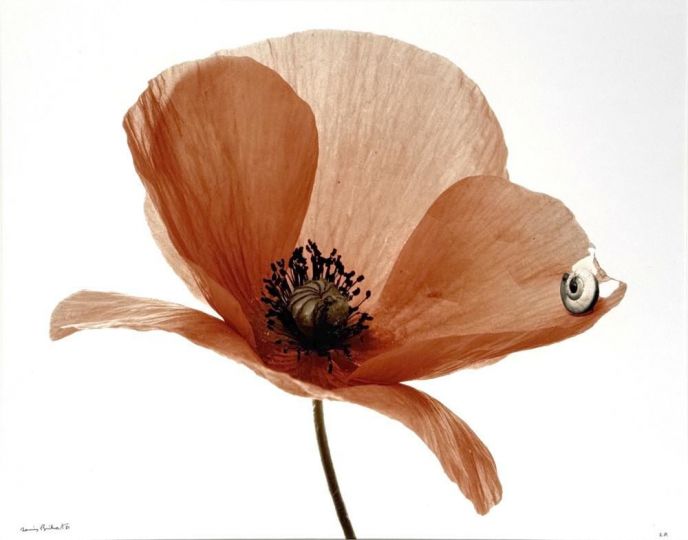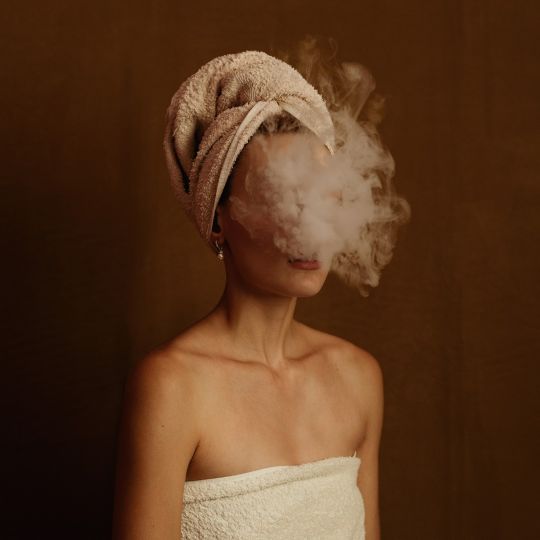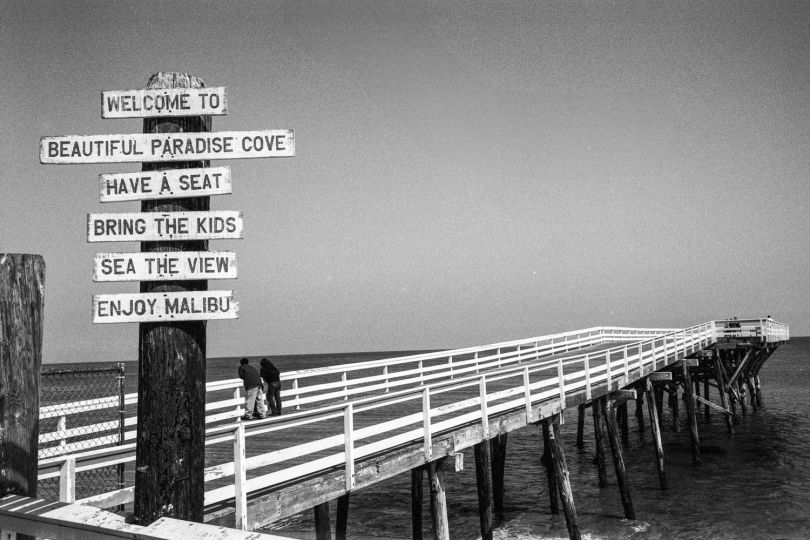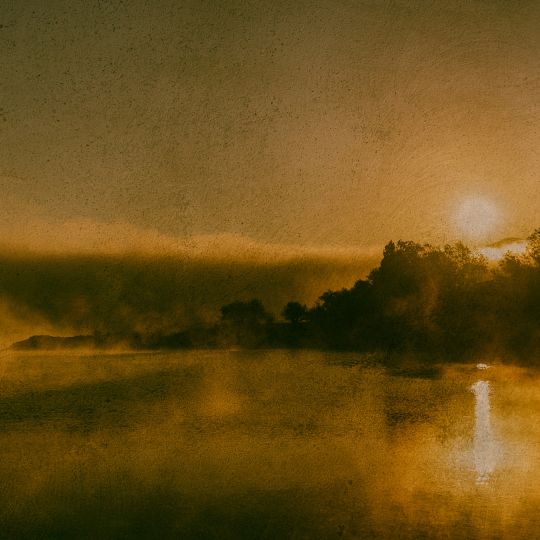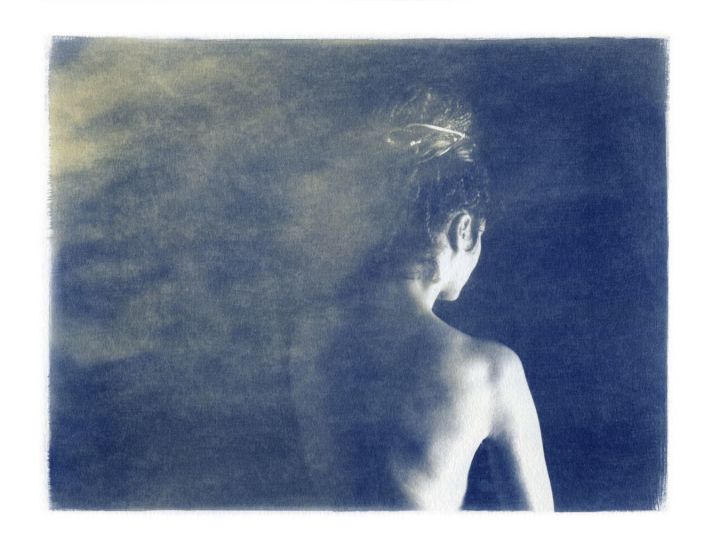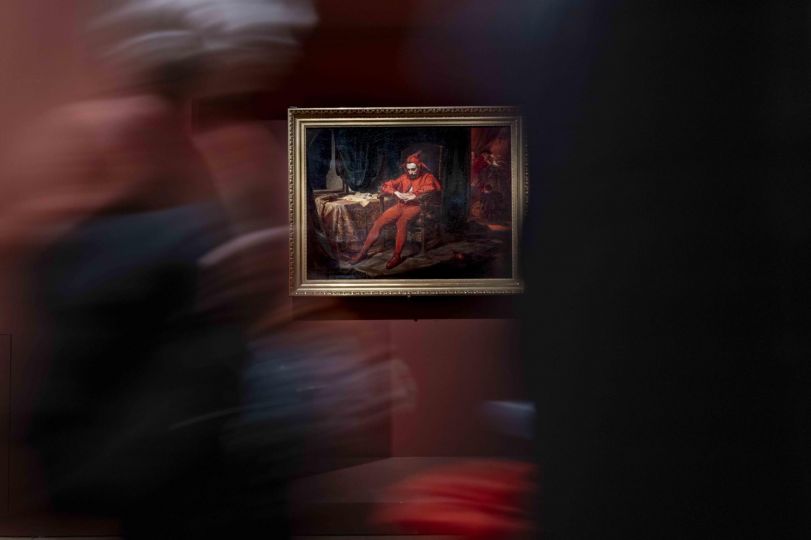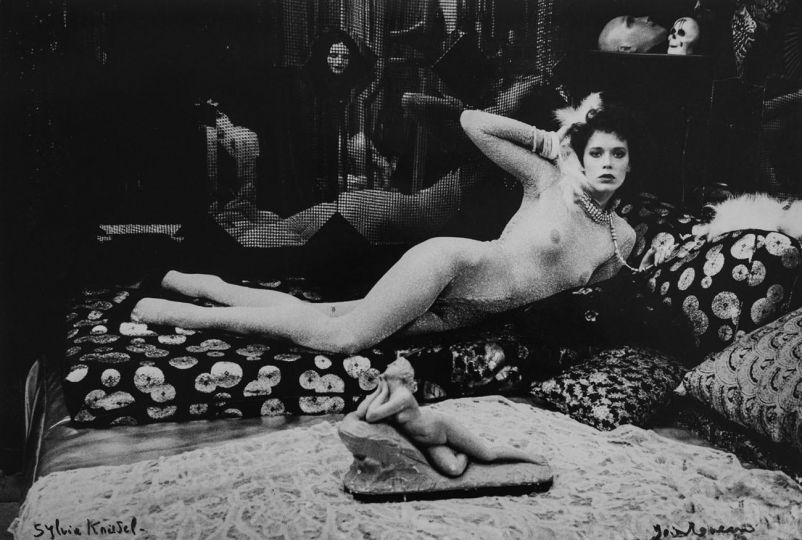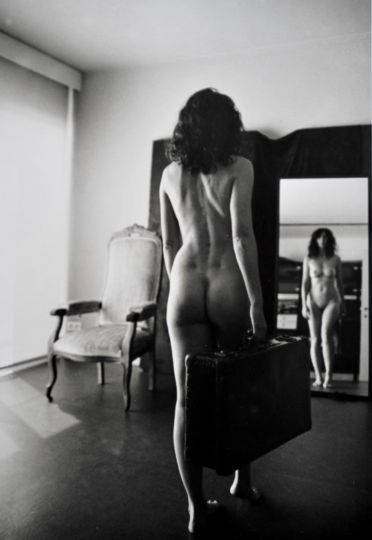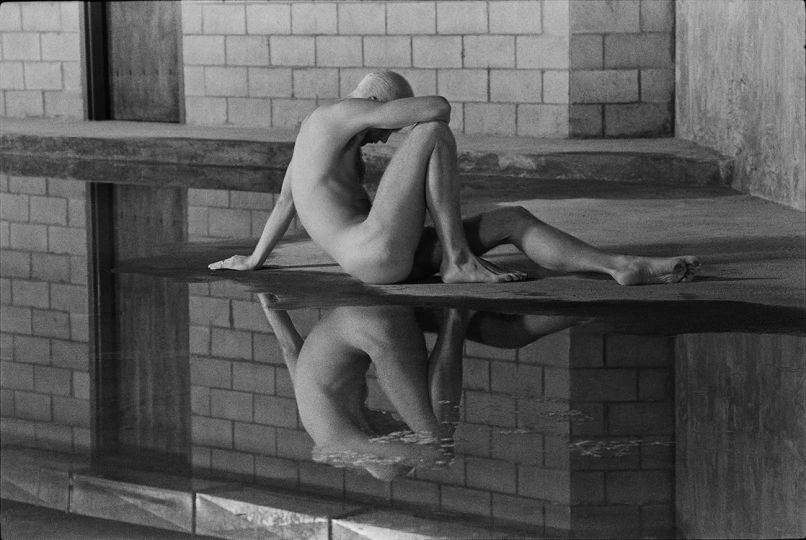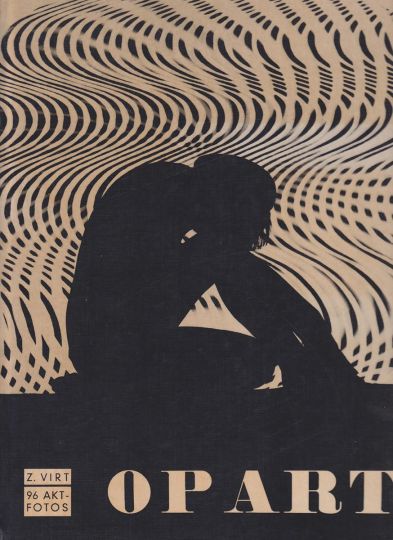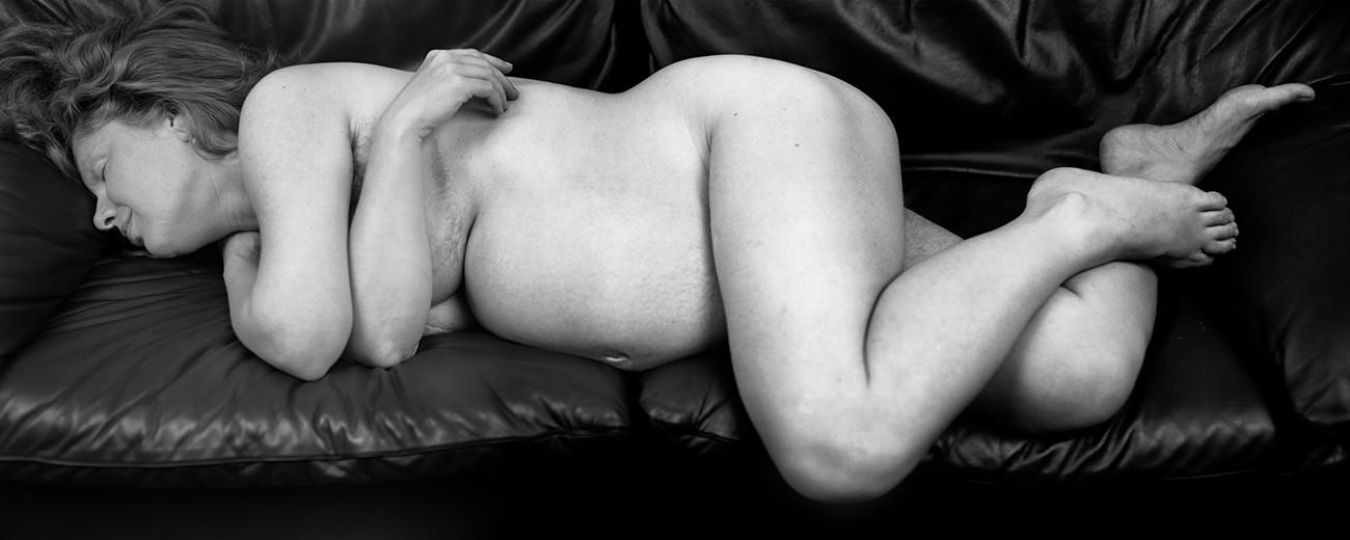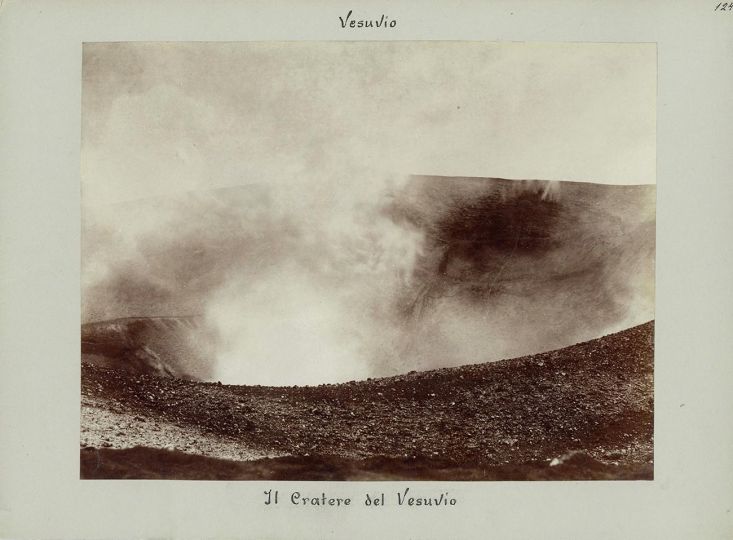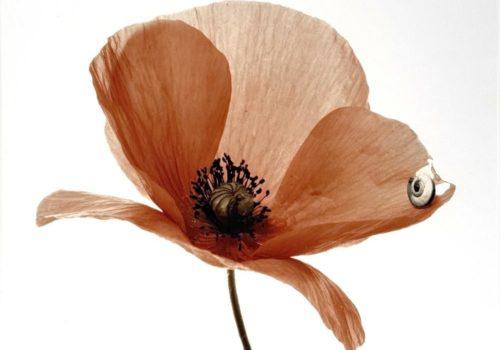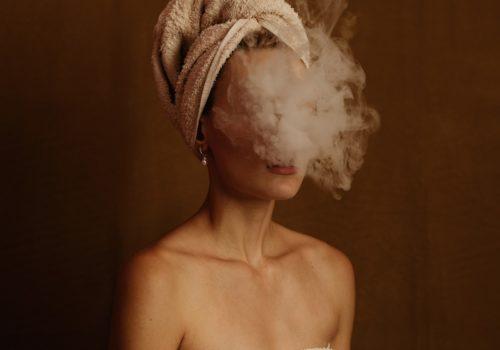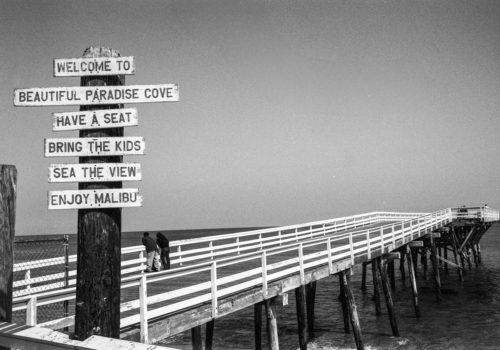For the first time in Germany, the KW Institute for Contemporary Art hosted the works of Pia Arke (1958-2007), an important figure in Inuit-Danish art. While Denmark kept Greenland under colonial rule for more than two centuries, shaping Western perceptions of the island and its inhabitants through an exotic lens, this artist’s work is deeply imbued by this dual heritage. Photographs, collages, writings and installations explore the tensions of a complex colonial past, offering a subtle reflection on exile, identity and memory.
A thick, blurred black grain… Pia Arke’s Greenlandic landscapes are marked by a texture that is both raw and dreamlike. To immortalize them, the artist built a camera obscura – present during the exhibition – in which she immerses herself and where her naked body follows the curves of the photographed landscape. Its presence is then suggested, guessed, imbued. A fusion between body and territory, an act of reappropriation where Arke is part of this territory, in opposition to colonial visual narratives.
The female body has a prominent place in Arke’s work, which places it in a socio-colonial analysis, in a context where indigenous women were objectified by the Western gaze. In The Three Graces, Arke appears alongside her cousin and a friend, posing dressed in modern, rather masculine clothing, holding artisanal Inuit objects in their hands. The three women, serious and expressionless, subvert the codes of ethnographic photographs, recalling that the image of the Inuit woman has been shaped by a voyeuristic and dominating gaze. Through this concrete staging, Arke claims their bodies as a space of power.
This exploration of intimacy is particularly strong in the series where Arke captures his friend Susanne Mortensen, who has undergone a mastectomy. Photographed nude, Mortensen appears in all her strength and fragility, defying aesthetic standards that reduce the female body to an ideal, far from reality. This series by Arke resonates as a tribute to the body marked by life, a resilient female body which refuses to bend to the expectations of a colonial and patriarchal gaze, to the point of making it a space of memory and experience.
In Arctic Hysteria IV, Arke works directly from images from colonial archives where Inuit women are presented naked and sexualized. Arke juxtaposes these images with those of male explorers equipped to face the great northern cold, exacerbating the objectification and implicit violence of the colonial gaze. A visual process which highlights how colonized women were reduced to exotic objects, fixed and stereotypical representations. By reversing this gaze, Arke gives a voice back to these bodies, making them actors in a history that has long been confiscated from them.
Pia Arke’s work does not simply observe colonial memories, but questions and challenges them. Through the reappropriation of his body and his roots, Arke invites us to reflect on the roles that the photographic medium and colonial narratives play in the construction of identity.
The Berlin exhibition was accompanied by the Pia Arke monograph, published by the John Hansard Gallery and the KW Institute for Contemporary Art, bringing together a large selection of the artist’s works.
Noémie de Bellaigue

